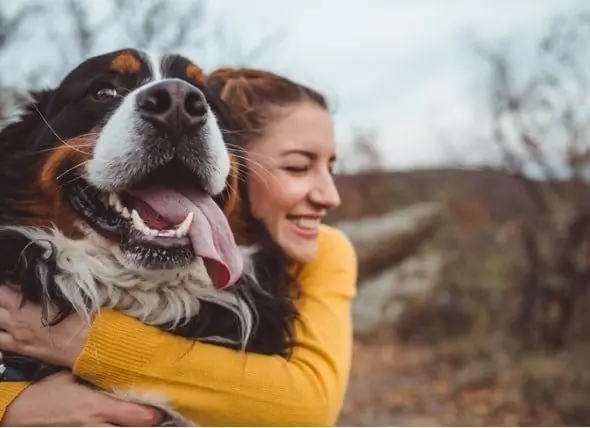
- Pengarang Daisy Haig [email protected].
- Public 2023-12-17 03:10.
- Terakhir diubah 2025-01-24 12:38.
Ketika Anda membeli anak anjing, Anda membeli "sertifikat kesehatan" untuk pergi bersamanya. Seperti konsumen yang berpikiran literal, Anda menganggap sertifikat dengan judul ini berarti dia telah diperiksa oleh dokter hewan dan telah menerima cap persetujuan di departemen kesehatan.
Tebak lagi.
Minggu lalu saya menerima banyak email dari daftar layanan FVMA (Florida Veterinary Medical Association). Topiknya adalah kebingungan profesional yang meluas tentang OCVI (Sertifikat Resmi Inspeksi Hewan untuk Penjualan Anjing atau Kucing Intrastate). OCVI, formulir yang menggunakan nama umum "sertifikat kesehatan," adalah salah satu dokumen yang diminta sebagian besar negara bagian untuk dilengkapi oleh dokter hewan berlisensi sebelum hewan dapat dijual atau dibawa melintasi batas negara bagian.
the point of this document? to ensure animals are vaccinated and free of parasites or other infectious diseases before sale, not (contrary to popular opinion, including mine before last week) to certify the animal’s complete health.
(at least that’s how it stands in the great state of florida, given the confusion that reigns over what these documents actually mean and how ocvis are to be filled out.)
i wasn’t sure i believed this. after all, it has always seemed to me that the purpose of this form was to ensure that unscrupulous breeders and pet shops couldn’t pass on clearly defective “merchandise.” even if you could care less about animal health and welfare, it makes sense that a health certificate should certify health at the time the animal is examined-in the interest of consumer protection, at the very least.
the emails on this thread proved otherwise. indeed, several veterinarians spoke out against the ocvi as a proof of health, referencing the need to avoid legal liability in the event that a purchased pet prove chronically ill or congenitally flawed.
silly me, i thought that was the point. since we get paid to sign these documents i figured the financial remuneration was in exchange for our expertise-that is, beyond pushing a few shots, checking for kennel cough and expertly scooping stool from a rectum for analysis.
wrong!
confused, i researched this issue. and here’s what i found:
apparently, the problem of “health certification” and veterinarian resistance to the issue stems from a drive to make vets liable for congenital illnesses that manifest up to a year after purchase when they sign ocvis.
example: a pup that was normal when a vet examined him at 8 weeks. six months later he’s diagnosed with hip dysplasia. and guess what? according to this proposed interpretation of ocvis the vet is potentially liable for his treatment.
given the choice between a document that makes me liable for what i can attest to and one that requires a crystal ball for the kind of accuracy i’m willing to sign my name to, i guess i’ll elect the former any day of the week. can’t blame my fvma colleagues on that score.
but why the either/or? why can’t i simply be liable for all the problems any reasonable vet should have seen at the time the exam?
honking heart murmurs, undescended testicles, certain obvious knee and hip diseases…
don’t these congenital niceties deserve to be included among the “health” issues we need to vet as vets?
i see pet shop pups and other shipped pets with two day-old ocvis bearing obvious congenital illnesses any third-year vet student could diagnose. clearly that’s wrong. someone needs to be accountable when these conditions are given a pass. but legally, all’s fair and square if a health certificate only deals in infectious diseases. after all, most states also have pet lemon laws making it “easy” to return a defective afflicted animal within a certain period of time. no harm no foul, right?
wrong again. no animal should be sold without a veterinarian’s stamp of approval within ten days of the sale. and that should mean that the animal appears to be completely healthy at the time of the exam. any congenital abnormalities should be written on the form. anything less means no sale. no way.
responsible breeders wouldn’t dream of doing otherwise. pet shops, on the other hand, exploit all the angles. they work with vets who know the loopholes as well as they do. they even try to get prospective owners to sign lemon law waivers, passing them off easily in the pile of paperwork that attends the point of sale.
as it stands, what you consider a health certificate for that puppy in the window may mean nothing except that said pup was vaccinated, no upper respiratory symptoms were noted and that no parasites were observed on the day the pup was presented to the vet for examination. but if vets are liable for only those meager, easily refutable functions, what does that say about the entire “health certification” process?
as my former ignorance of the law clearly implies, not all vets even know what they’re signing when they complete these forms. but you can bet the ones who work for the pet shops do.
check your state’s regulations to determine what your health certificates mean. even if you’ll never purchase a pet in your lifetime, your moral compass should drive you to care about what happens to thousands of animals every day in your state/province/country.
no-health health certificates? they simply ensure that poor quality purveyors of congenitally flawed animal flesh can continue to breed animals irresponsibly, unfairly and cruelly. and that’s gotta change.
Direkomendasikan:
Pendapat Dokter Hewan Tentang Perubahan Sikap Orangtua Hewan Peliharaan Terhadap Kesehatan Hewan Peliharaan

Dapatkan perspektif dokter hewan tentang pendekatan orang tua hewan peliharaan modern untuk perawatan hewan peliharaan dan kesehatan hewan peliharaan
Hewan Peliharaan Yang Bepergian Sering Membutuhkan Sertifikat Kesehatan

Tahukah Anda bahwa jika Anda melewati batas negara bagian dengan hewan peliharaan Anda, Anda harus membawa sertifikat inspeksi hewan saat ini? Itu benar. Pikirkan kembali saat terakhir kali Anda mengunjungi Bibi Mable di Ohio atau pergi mendaki di Virginia. Anda melanggar hukum jika membawa Fluffy atau Fido tanpa sertifikat kesehatan health
Apa Yang Diberitahukan Tes Laboratorium Tentang Kesehatan Kucing Anda

Kunjungan dokter hewan penting untuk kesehatan kucing Anda. Dokter hewan Anda kemungkinan besar akan merekomendasikan melakukan tes darah dan urin rutin untuk kucing Anda. Apa yang dapat ditunjukkan oleh tes darah dan urin ini yang mungkin tidak ditunjukkan oleh pemeriksaan fisik? Pertanyaan-pertanyaan ini dijawab di sini
MRSA Dalam Hewan Peliharaan: Siapa Yang Memberinya? Siapa Yang Mendapatkannya?

Karena terbatasnya data yang tersedia tentang penularan MRSA antara manusia dan hewan rumah tangga (kita pasti tahu itu mungkin), menurut pengalaman saya, banyak dokter yang merawat pasien infeksi MRSA telah merekomendasikan hal "tidak ada hewan peliharaan". Baca lebih banyak
Apakah Hewan Peliharaan Saya Gay? Dokter Hewan Ini Menjawab Pertanyaan Tentang Hewan Peliharaan Gay (melawan Penilaiannya Yang Lebih Baik)

"Saya berharap saya bisa berhenti menjadi domba betina" dan "Dia tidak menyukai domba betina" hanyalah dua dari permainan kata-kata hambar yang menjadi berita utama setelah seorang peneliti di Oregon State University mendapatkan pers PETA yang tidak diinginkan
